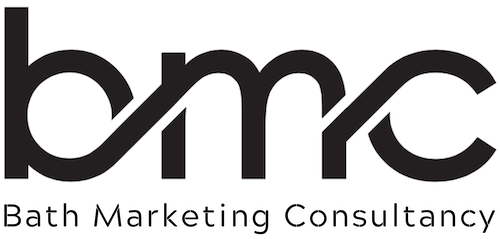Email marketing is one of the most effective tools in modern digital communication. It enables businesses to connect directly with their audience through email, creating a personal and targeted channel of engagement. Through this approach, companies can build stronger relationships with both potential and existing customers, nurturing leads and maintaining ongoing interaction. It is widely used for promoting products or services, sharing updates, and strengthening brand awareness. Unlike social media or paid advertising, which reach broad and sometimes unpredictable audiences, email marketing offers a more controlled and personalised way to deliver tailored messages that resonate with specific recipients, leading to higher engagement and conversion potential.
Why Use Email Marketing?
Businesses invest in email marketing for several key reasons:
- Cost-Effective – Compared to other forms of marketing, email marketing offers a high return on investment (ROI) with minimal costs.
- Targeted & Personalised – Email segmentation allows businesses to send tailored content to specific audiences.
- Measurable Performance – Marketers can track open rates, click-through rates, conversions, and overall engagement.
- Automation & Scalability – Automated workflows can send timely emails based on customer behaviour, making marketing efforts more efficient.
The Importance of a Clean Recipient Database
A successful email marketing campaign starts with a high-quality, well-maintained recipient database. Sending emails to outdated, inactive, or irrelevant contacts can lead to:
- Low Engagement Rates – Unresponsive recipients result in wasted effort.
- Spam Complaints & Deliverability Issues – If too many recipients mark your emails as spam, email providers may flag your domain.
- GDPR Compliance Risks – Businesses must ensure their email lists comply with data protection regulations, especially in the UK and EU.
Regularly cleaning and updating your database—removing inactive subscribers and ensuring that email permissions are up to date—helps maintain strong deliverability and engagement rates.
The Role of a Clear Call to Action (CTA)
Getting an email opened is just the first step. To drive conversions, every email should include a clear and compelling CTA that directs recipients to take a specific action, such as:
- Visiting a website
- Signing up for an event
- Downloading a resource
- Making a purchase
A strong CTA should be concise, action-oriented, and visually distinct, encouraging users to take the next step.
Email Marketing Platforms: Pros & Cons
There are several platforms available to help businesses manage their email marketing efforts. Below are some of the most popular options, along with their advantages and disadvantages:
1. Mailchimp
✅ Pros:
- Easy to use with a drag-and-drop email builder
- Free plan available for small businesses
- Good automation and analytics tools
❌ Cons:
- Limited design flexibility in free templates
- Costs increase significantly as subscriber lists grow
2. HubSpot
✅ Pros:
- Fully integrated with CRM for personalised marketing
- Advanced automation and analytics
- Ideal for businesses looking for an all-in-one marketing platform
❌ Cons:
- Higher cost compared to other platforms
- Steeper learning curve
3. Campaign Monitor
✅ Pros:
- Professional-looking templates and branding options
- Advanced segmentation and personalisation features
- Strong analytics tools
❌ Cons:
- No free plan available
- Limited automation compared to competitors
4. Sendinblue
✅ Pros:
- Affordable pricing with a free plan
- Good automation and SMS marketing features
- Strong deliverability rates
❌ Cons:
- Fewer integrations compared to competitors
- Template editor can be less intuitive
5. ActiveCampaign
✅ Pros:
- Powerful automation and segmentation features
- Advanced email personalisation and CRM integration
- Excellent for eCommerce businesses
❌ Cons:
- No free plan, pricing can be expensive
- Can be overwhelming for beginners
FAQs
What is “email open rate” and why does it matter?
The email open rate is the percentage of recipients who open your email out of all those sent (or delivered). It matters because it’s a key indicator of how well your subject lines, sender name, and email relevance are working. If people don’t open your email, none of your content, offers or calls-to-action matter.
What are the main factors that influence whether people open emails?
According to the article, key factors include:
- A clean, well-maintained recipient list (no outdated or irrelevant contacts)
- A strong, relevant subject line / sender name
- The relevancy & segmentation of content
- Good deliverability (avoiding spam filters)
- Timing and frequency (not too many, not too few)
Why is a clean recipient database so important?
Because outdated, inactive, or irrelevant contacts can drag down your open rate metrics, lead to more unsubscribes or spam complaints, and hurt your deliverability (i.e. emails being flagged by email providers). Keeping your list clean helps maintain sender reputation and keeps engagement metrics stronger.
Is having a clear “Call to Action” (CTA) relevant to open rates?
Not directly — a CTA doesn’t affect the open rate itself (that’s about subject, sender, deliverability) — but once an email is opened, having a clear CTA is essential to move recipients toward conversion (clicking, purchasing, or taking action). The article emphasizes that getting people to open is only the first step; a compelling CTA is needed to drive results.
Which email platforms are mentioned, and how do they differ?
The article discusses several popular email marketing platforms and their pros/cons:
- Mailchimp – user-friendly, drag & drop, free plan (but becomes pricey with growth)
bathmarketingconsultancy.co.uk - HubSpot – integrated CRM, advanced automation, strong analytics (but higher cost)
bathmarketingconsultancy.co.uk - Campaign Monitor – good for branding and templates, advanced segmentation
bathmarketingconsultancy.co.uk - Sendinblue – affordable pricing, includes SMS marketing features
bathmarketingconsultancy.co.uk - ActiveCampaign – powerful in automation and personalization, good for e-commerce
bathmarketingconsultancy.co.uk
Each has trade-offs in cost, complexity, automation, template flexibility, and scalability.
Final Thoughts
Email marketing remains one of the most effective digital marketing strategies, but success depends on a well-maintained recipient list, high-quality content, and a strategic approach to CTAs. Businesses should carefully choose an email marketing platform that aligns with their needs and ensure their campaigns are professionally designed and executed for maximum impact.
While free platforms like Mailchimp provide an easy starting point, working with an experienced marketing professional can help tailor campaigns, enhance design quality, and improve overall effectiveness. Email marketing should be part of a broader digital strategy that integrates content marketing, SEO, and social media for the best results.



